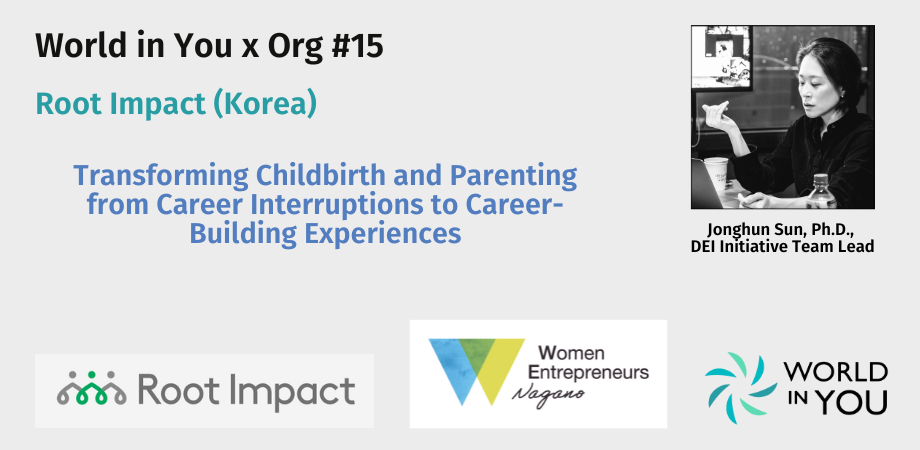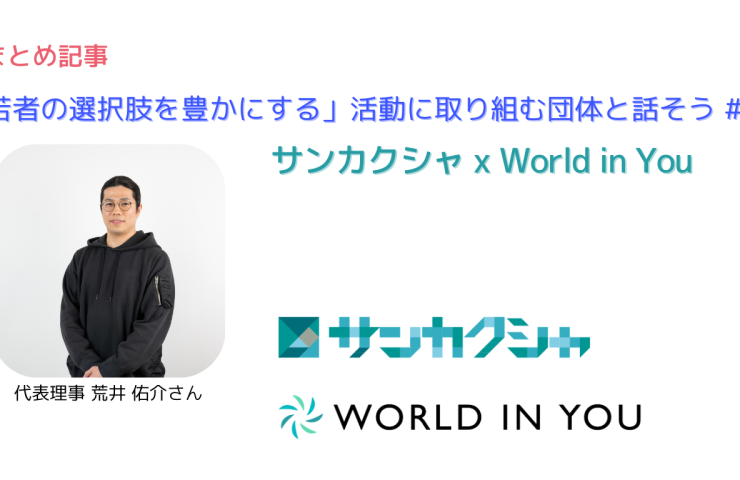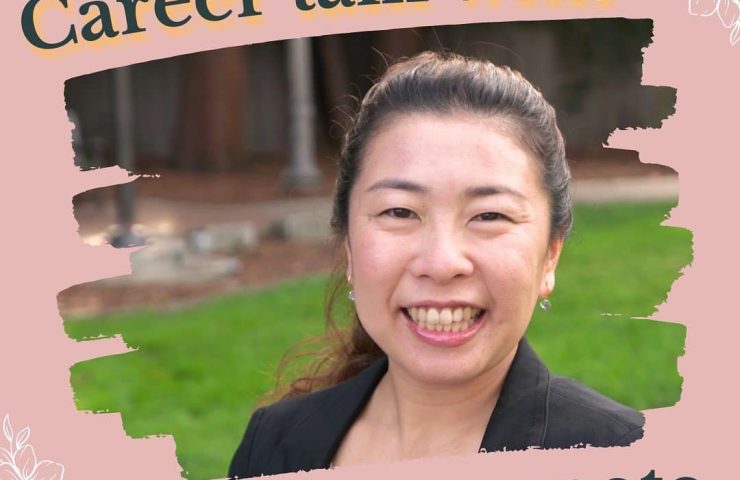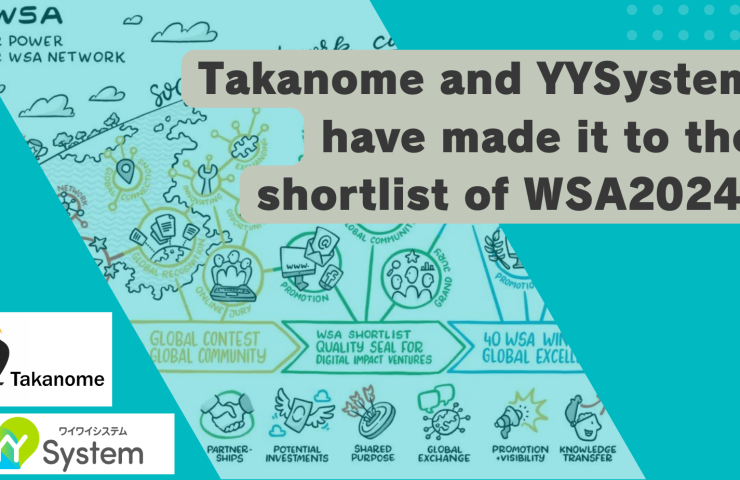Transforming Childbirth and Parenting from Career Interruptions to Career-Building Experiences — Insights from Root Impact, Korea

In the World in You x Org Interview Series, we shine a spotlight on the trailblazing impact organizations and visionary entrepreneurs dedicated to forging a brighter, more sustainable society.
In July 2025, we welcomed Dr. Jonghun Sun, the DEI Initiative Team Lead at the Korean nonprofit organization Root Impact.
Enjoy the full conversation on Youtube.
Interviewer: Mio Yamamoto, Article: Momone Honda
Gender Equality in Japan and Korea
Japan and Korea both rank low in the World Economic Forum’s Global Gender Gap Index — Korea at 94th and Japan at 118th. In both countries, women’s participation in the economy and politics remains a major challenge. Against this backdrop, this event aimed to share challenges and success stories from both countries and to learn from one another’s experiences.


Root Impact: Mission and Approach
Root Impact is an intermediary nonprofit organization dedicated to addressing social challenges. The organization describes itself as “changemakers for changemakers,” with a mission to create a sustainable future by empowering individuals and organizations that drive social impact.
For more than a decade, Root Impact has been building an “impact ecosystem” where diverse players collaborate and create synergies. Its activities are developed around four key pillars.
1. Impact-Oriented Community Office : Hayground
Hayground is a membership-based co-working space designed for individuals and organizations tackling social issues. More than 300 organizations have joined, working in fields such as education, climate change, poverty reduction, and disability inclusion. Together they form a strong, collaborative community within this shared workspace.
2. Capacity Building
Root Impact provides skills and resources that help nonprofit and impact-driven organizations succeed. Programs include Hey Leaders, a leadership training program for nonprofit leaders, as well as AI and business skills courses designed to help organizations build sustainable management capacity.
3. Impact-Oriented Career Support
Root Impact supports young people in building meaningful careers in the social sector. Through training programs for university students who aspire to work in impact-related fields, and through a career matching platform that connects young talent with purpose-driven organizations, the initiative has opened up many career pathways for the next generation of changemakers.
4. Impact Philanthropy
Root Impact connects donors with impact-oriented organizations to maximize social outcomes. Each fund pools resources from different donors to address specific social issues. The IP1 Fund, for example, supported nonprofit organizations through both financial aid and business development assistance, while also offering individual fellowships during its implementation phase.
Root Impact’s New Challenge: The DEI Initiative
Over the past decade, Root Impact has focused on building an impact ecosystem that connects diverse organizations and individuals to collaborate toward social change. In 2024, the organization began a new phase by identifying three core impact themes, one of which is the DEI (Diversity, Equity, and Inclusion) Initiative.
This initiative focuses on issues such as gender inequality and lack of diversity in workplaces and society. According to the Economist’s Glass Ceiling Index, Korea ranks the lowest among OECD countries in terms of gender equality at work. The country also faces a severe decline in birth rates, which has raised concerns about the long-term sustainability of its society.
A key focus of Root Impact’s DEI Initiative is addressing the “child penalty,” the career interruption many women face after having children. Research in Korea shows that women in their 30s and 40s are 14% more likely to experience career breaks due to childbirth. To address this challenge, Root Impact has been implementing several workplace innovations.
Concrete Initiatives
1. On-Site Daycare Center “Forest for All”
To create an environment where working parents can balance childcare and careers, more than 30 companies jointly established a consortium-style daycare center within the workplace. So far, 69 children have used the facility, enabling parents from over 30 companies to continue their careers while raising children.
2. From “Career-Interrupted Women” to “Experienced Women”
Root Impact has been promoting a shift in public perception regarding women who leave work for childbirth or childcare. The organization worked with government partners to replace the negative term “career-interrupted women” with the more positive phrase “experienced women,” encouraging a societal redefinition of motherhood and career. In addition, the organization launched a training program; RE:BOOT CAMP, that has supported over 30 women through eight cohorts, with more than 60% successfully returning to the workforce.
3. DEI Lab
To transform workplace culture, Root Impact launched the DEI Lab, a platform where organizational leaders and HR professionals share their practices and learn from each other. The organization has also begun conducting research and offering training programs.
Focus: Providing a space to learn about the importance of DEI culture and concrete approaches to building inclusive workplace environments.
Impact: Participating organizations have shown strong satisfaction, and more companies are now taking the initiative to advance internal reforms on their own.
Long-Term Goals of the DEI Initiative
1. Building Inclusive Workplace Infrastructure
Root Impact aims to expand workplace environments that welcome families, including on-site childcare, to enable diverse talents to thrive.
2. Creating a DEI Movement
Through training and awareness programs, the initiative seeks to embed diversity as a core organizational value and spread inclusive culture across sectors.
3. Strengthening Policy Influence
By contributing to policy changes and regulations that support gender equality and diversity, the organization seeks to build a sustainable foundation for long-term social transformation.
Japan–Korea Comparison
Like Korea, Japan also faces challenges in supporting women’s re-entry into the workforce and balancing work and family life. In 2015, the Japanese government enacted the Act on Promotion of Women’s Participation and Advancement in the Workplace, encouraging companies to improve environments for post-maternity returnees and to develop more inclusive workplace structures.
More recently, Japan has been promoting paternity leave and encouraging fathers’ participation in childcare to improve work–life balance. The COVID-19 pandemic further accelerated changes in family dynamics and work styles, leading some couples to build more equal relationships at home.
However, deeply rooted cultural expectations and traditional gender roles continue to pose barriers. Sustainable transformation will require time and consistent efforts from both public and private sectors, as well as a cultural shift toward recognizing parenting and family responsibilities as shared, valuable experiences that contribute to one’s professional growth.
Q&A
—What is the biggest challenge in improving women’s working environments?
The biggest challenge is changing the mindset of management and society as a whole. In Korea, the so-called “child penalty” — where women’s careers are interrupted after having children — remains a serious issue. We need to move away from the idea that work and life are separate, and instead promote the understanding that parenting experiences can also be valuable in the workplace.
—How can we change fixed perceptions about DEI and gender frameworks?
DEI is often associated with cultural or political debates and interpreted in many different ways. It is important to dispel misunderstandings and promote broader understanding. Women themselves also need to embrace parenting as a meaningful “career experience,” rather than viewing it as a “career interruption.”
—What kind of research is needed in Japan and Korea?
It is essential to build frameworks that recognize domestic and parenting experiences as professional skills. Research should explore how childcare experience enhances problem-solving and other abilities that can be applied in the workplace.
—What is the current state of impact investing in Korea, and what role does Root Impact play?
Impact investment in Korea is still a relatively new field, different from traditional charity or donations. The main participants are younger philanthropists and recently successful business leaders. Root Impact provides education and consulting to help them understand the potential of long-term, impact-driven giving and investment. Rather than simply seeking large donations, we support donors in creating sustainable social impact through planning, research, and strategy.
—Are younger generations interested in DEI and gender issues?
Interest in DEI and gender issues varies from person to person. Some are particularly focused on gender identity or diversity-related topics, but there are still relatively few business leaders or impact investors who openly support DEI. More awareness and education efforts are needed to deepen understanding in this field.
—Why does Root Impact work with small and medium-sized enterprises (SMEs), and how does it encourage change?
We work with SMEs because they are accessible partners that often share cultural values and are easier to engage with due to their smaller scale. However, DEI is sometimes seen as a “luxury” for SMEs, which remains a challenge. To overcome this, it is crucial to help them understand that DEI is not a cost but a foundation for sustainable business growth.
—Are there differences in supporting women’s re-employment between urban and local areas?
In Korea, most of the population is concentrated in Seoul, and many existing support programs have been focused on the capital region. However, women in local areas face different challenges due to varying cultural and economic contexts. Therefore, localized approaches that reflect the values and realities of each community are essential.
—What types of initiatives are needed to support women in local areas?
In many local areas, patriarchal culture remains deeply rooted, and many women lack confidence in returning to work. To address this, programs that build both professional and practical skills can be highly effective. Training sessions covering topics such as computer literacy, IT skills, and public speaking help women gain confidence and the ability to promote themselves to potential employers. Root Impact has also organized events that connect small businesses with talented local women, creating a system through which local female talent can be discovered and supported.
—What are the main causes of declining marriage and birth rates in Korea? Do younger generations feel the same way?
Women in Korea often face a “double burden,” balancing traditional family expectations with modern career ambitions. While they are encouraged to pursue education and careers, they are also expected to fulfill domestic responsibilities. This tension forces many to choose between career and family, leading to lower marriage and birth rates.
In addition, rising housing prices and the high cost of education in Seoul make it difficult for young people to envision starting families. These economic pressures, combined with social expectations, have contributed significantly to Korea’s declining marriage and birth rates.
Jonghun Sun さん、Root Impact DEI Initiative Team Lead (Ph.D.):

Root Impactについて
Root Impact, a nonprofit organization established in 2012, discovers and supports changemakers who innovatively solve social and environmental issues. It fosters a sustainable ecosystem for their growth and leads initiatives for fair future education, sustainable cities, and workplace diversity and inclusion.
Notable projects include ‘Heyground’, a community office for impact-oriented organizations like social ventures and enterprises; ‘impact.career’, supporting youth in starting and growing impact careers; and ‘Impact Philanthropy’, connecting impact-first capital with impact-oriented organizations.
Root Impact also operates ‘Re:Boot Camp’ for experienced women and ‘Forest for All Daycare Center’, a daycare center for social ventures.
◆Contact Us















